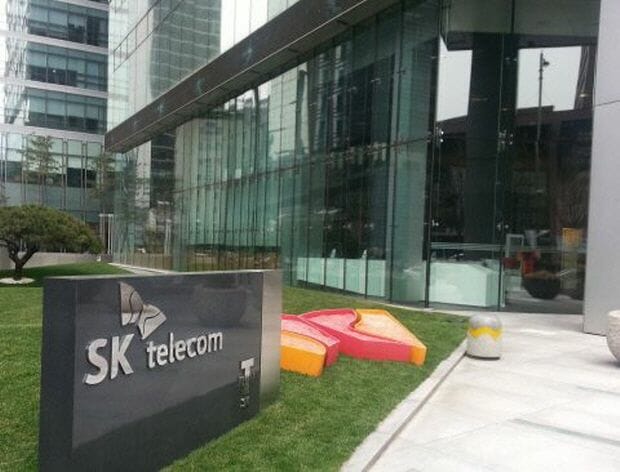
The Fair Trade Commission decided to impose a penalty of about 6.4 billion won, saying that SK Telecom paid some incentives (sales commission) for selling IPTVs of its subsidiary SK Broadband.
This is why SK Telecom interfered with fair competition in the process of combining mobile communication services and broadcasting services of subsidiaries.
While the Fair Trade Commission said that conglomerates had confirmed the illegal behavior by showing their financial power in the market in which the affiliates belong, SK Telecom objected that it was a rational transaction between affiliates and rather a decision to curb free competition in the combined product market.
SK Telecom also confirmed the resolution of the FTC and announced a legal response.
On the 24th, the Fair Trade Commission announced that SK Telecom has decided to impose a correction order and a penalty of 6,396 billion won, claiming that SK Telecom provided unfair support for SK Broadband. The penalty is KRW 3.18 billion, respectively, for SK Telecom and SK Broadband.
■ Fair Trade Commission “Discovered Unfair Support for Large Enterprise Group Affiliates”
The FTC concluded that in the process of combining SK Broadband’s IPTV with mobile communication services, SK Telecom paid a sales commission of about 19.99 billion won to its sales agent instead.
The increase in the proportion of combined product sales in the wired and wireless communications market is an overall trend. Meanwhile, the FTC’s judgment is that SK Telecom raised SK Broadband’s IPTV market share and supported subsidiaries by paying incentives for their financial limitations.
The FTC also saw that the market share of SK Broadband’s IPTV service increased with the support of SK Telecom, and financial performance improved rapidly.
In other words, it is explained that the two companies enjoyed the advantage of IPTV competition in the mobile communication market with the influence of SK Telecom and the funding power of the parent company.
The Fair Trade Commission said, “It is meaningful that a large corporate group’s affiliates have confirmed the violation of fair trade in the market in which the other affiliates belong with the preemptive effect and financial power in one market.”
“It is also meaningful that the normal price was calculated based on the expected revenue per service (ARPU, average sales per subscriber) for the common cost sharing among affiliates, which is difficult to identify from outside, and the unreasonableness of funding between affiliates was also meaningful.” He added.
■ SK “Is it illegal to deal with a reasonable affiliate?”
SK is protesting against the Fair Trade Commission’s judgment. Contrary to the Fair Trade Commission’s judgment that it impeded fair trade, they also expressed concerns that it would be a decision to limit market competition.
An official from SK Telecom said, “Because I did not receive the FTC resolution, I could not confirm the details.” “We are very sorry for the deliberation result of judging normal market competition and reasonable affiliate transactions as illegal.”
First of all, the FTC announced that it did not bear the cost of attracting IPTV subscribers, which is the main reason for imposing sanctions.
An official from SK Telecom explained, “Because of the objective and rational sharing of sales fees between the two companies, there was no separate support act for SK Broadband.” “SK Broadband also paid all its own expenses and went through post settlement.”
It also refuted the FTC’s judgment that it increased the market share of IPTV services due to the influence of mobile phone services. SK Telecom’s position is that it is not for the purpose of unfair support by SK Broadband, but for response to competition in the mobile phone market.
While the FTC judged that the competition order was undermined, SK Telecom pointed out that the sanctions restrict free competition in the combined product market.
The company said, “I am concerned that consumer welfare will not be reduced,” and said, “We are planning to go through legal procedures by analyzing the contents of the resolution of the FTC.”
■ Industry “Unpredictable FTC regulation”
In the telecommunications industry and the paid broadcasting industry, the judgment of the FTC is somewhat questionable. As the government decided to impose sanctions on competitors, it does not make a voice, but there are voices saying whether regulatory predictability is deteriorating.
An official in the paid broadcasting industry said, “KT and LG Uplus, which provide IPTV services, sell wireless services at the same time in one company, but only SK Telecom does not seem to consider selling wired services at subsidiaries.” .
“Recently, SK Broadband’s market share in the pay-TV market has increased dramatically, which is the biggest reason that the FTC approved the Tbroad M&A.” All three IPTV companies have increased their market share.”
He also said, “In the TPS (mobile phone, high-speed Internet, IPTV) products, which are the most prevalent in the combined product market, the service with the highest competition intensity is the mobile phone, and the actual expected profit is much higher for mobile phones. It is difficult to understand that it is not intended to increase the market share of IPTV.”
Related Articles

“The company is twice as happy when employees raise money”…SKB briquette sharing’eye way’

“Free transmission fee” Netflix vs. “Free is a force” SKB

Why is CJ Hello M&A different from 3 years ago?

SK-Tivroad approves merger with LG-CJ Hello… pay TV reorganization
There are disagreements about the FTC’s judgment that it is reasonable to calculate the normal share ratio based on total ARPU.
An official in the telecommunications industry said, “In the telecommunication accounting standards, the standard for distribution of promotional expenses by service is fee revenue.” But, the FTC calculated total sales, including advertising sales and home shopping transmission fees. It is the result of negotiations between companies at the time, and it is difficult to understand how to distribute this as a service for promotional expenses.”
